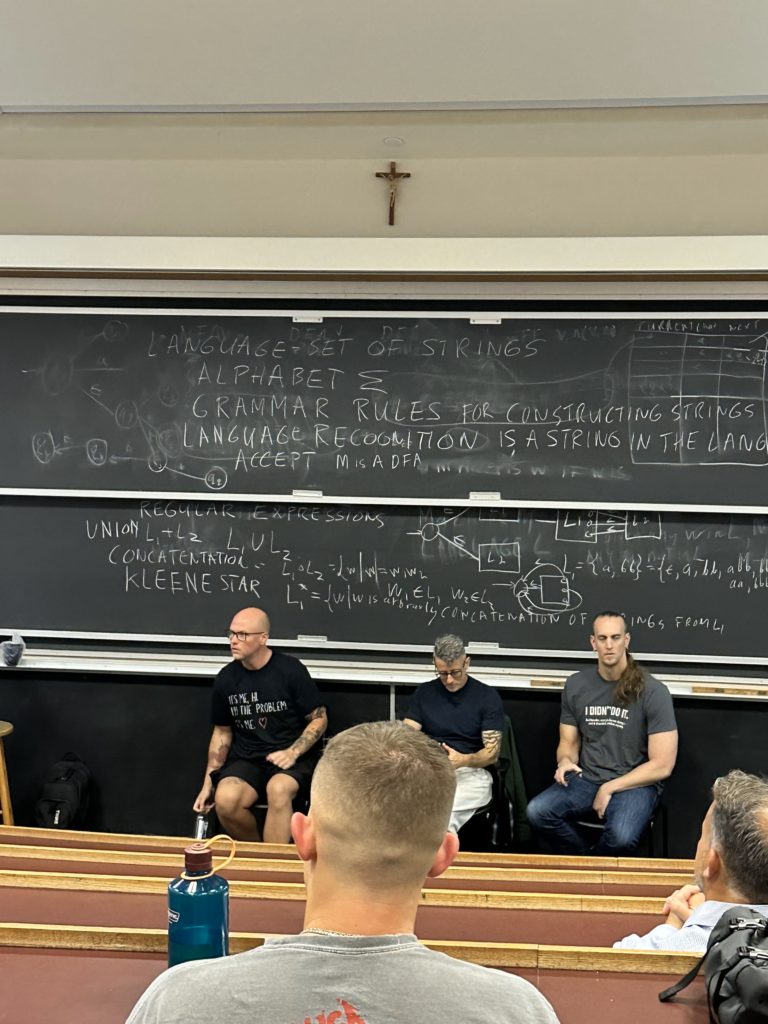Ex-hackers roundtable discusses 1990s hacking, security industry // The Observer
Notre Dame faculty Walter Scheirer and Luis Felipe Murillo began teaching a course last spring called “The Archaeology of Hacking: Everything You Wanted to Know About Hacking but Were Afraid to Ask.” On Thursday, the two faculty members held a hacker roundtable where 1990s hacking and its evolution were discussed by three ex-hackers and a professor of anthropology.
The panel was mediated by Gabriella Coleman, a Harvard professor of anthropology focusing on hacking and computing. Panelists included Rocky Witt, a senior security engineer in the cryptocurrency industry; Mike Schiffman, lead of network security engineering at Google and Stephen Watt, a software engineer at DomainTools. Witt, Schiffman and Watt were all former hackers.
Each panelist introduced themselves and told the story of how they became interested in hacking.
Witt said his family received their first computer in the mid-1990s.
“I was very bored in school, very bored in my small town and I turned to mischief to keep myself entertained,” he said.
Witt’s first attempt to gain unauthorized access into systems was copying login strings.
Schiffman said his first experience with a computer was with a Commodore VIC 20, which was owned by his father.
Schiffman’s friend introduced him to the hacking world, where he used an Internet Relay Chat (IRC) to “consume information.”
Watt received his first computer around 1991, when he was about eight years old.
“I got online because I grew up in Florida — weather was too hot,” Watt said. “Shortly thereafter, I started dialing up some local bulletin boards with my modem. From there, I started getting into pirating software.”
When Coleman asked about the “multifaceted” social scene among hackers in the 1990s, Witt mentioned the vast use of IRCs in “looking for sources of information or people who can teach you something.”
“Back in the day, it was probably a lot more likely that [security vulnerabilities with ‘zero days’ left to protect] would actually leak. You’d have … a closed network of people sharing information between trusted friends and somebody might just publish it,” Watt said.
Watt said an interested hacker would usually…

